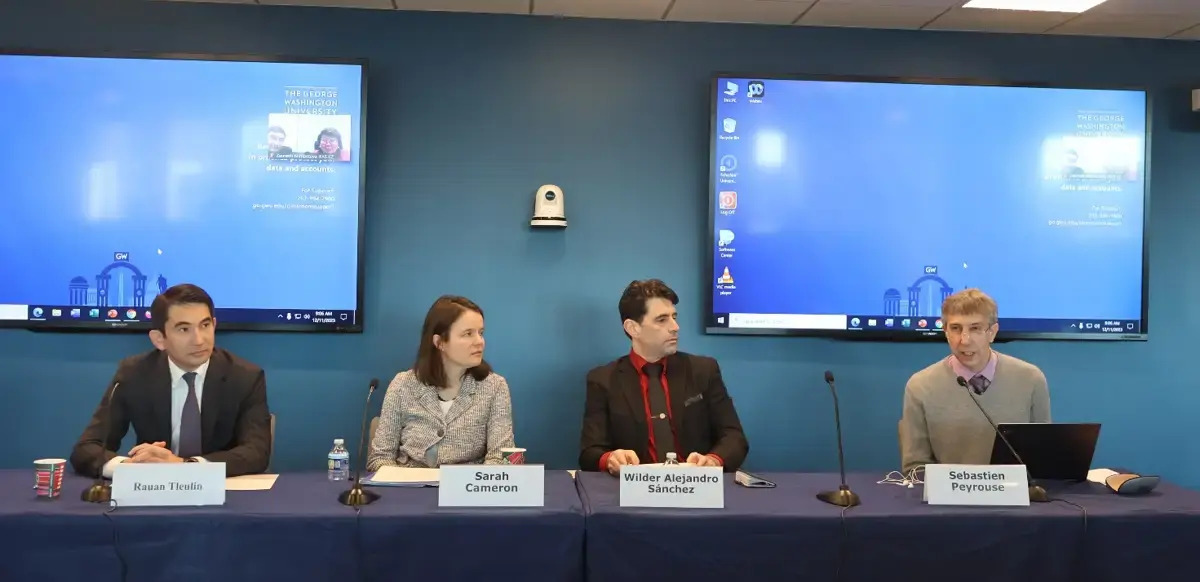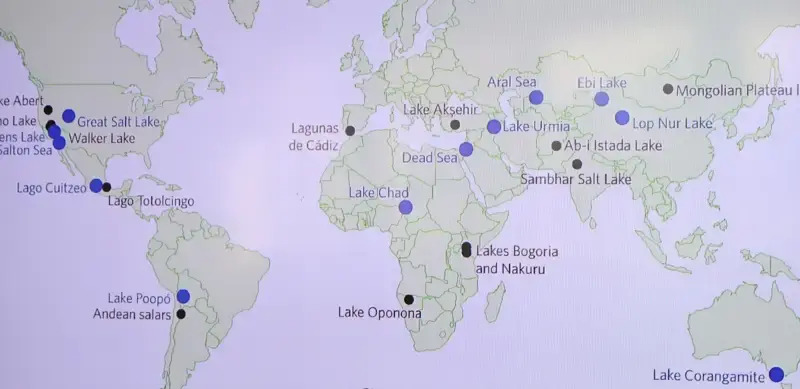ASTANA – The George Washington University and the Kazakh Embassy in the United States discussed the shallowing of waters, including the Aral Sea, on Dec. 11, reported Kazinform news agency.

Photo credit: Rustem Kozhybayev/Kazinform
Director of the Central Asia Program Sebastien Peyrouse, who moderated the event, noted that the climate crisis is a crucial topic not only for Central Asia but also for the world community, as reservoirs worldwide, including the United States, are drying up. Humanity is already facing the threat of climate change and global water shortages.

Photo credit: Rustem Kozhybayev/Kazinform
Minister Counselor of the Kazakh Embassy in the United States Rauan Tleulin outlined that since gaining independence, Kazakhstan has been paying significant attention to climate change and water-related problems.
Kazakhstan ratified the Paris Agreement and adopted the Strategy on Achieving Carbon Neutrality by 2060. At the United Nations (UN) Climate Change Conference (COP28) in Dubai, President of Kazakhstan Kassym-Jomart Tokayev emphasized the importance of supporting the International Fund for Saving the Aral Sea (IFAS) and holding a Regional Climate Summit in Kazakhstan in 2026 under the auspices of the UN.
Tleulin proposed to create the United States-Kazakh Aral Sea Task Force to join efforts to solve environmental problems and improve access to water.
Sarah Cameron, associate professor of history at the University of Maryland, said she is writing a book about the Aral Sea to draw global attention to water issues. She noted that the United States is also facing the problem of shrinking bodies of water, such as the Great Salt Lake and Lake Mead, similar to the Aral Sea.
Cameron noted that the world needs regional cooperation of border countries on water resources. Hydrologists and geologists can help understand where the water is going and how it can be restored.
The event participants noted it is necessary to discuss and attract the attention of the world community to the problem of shallow water bodies and find solutions.

